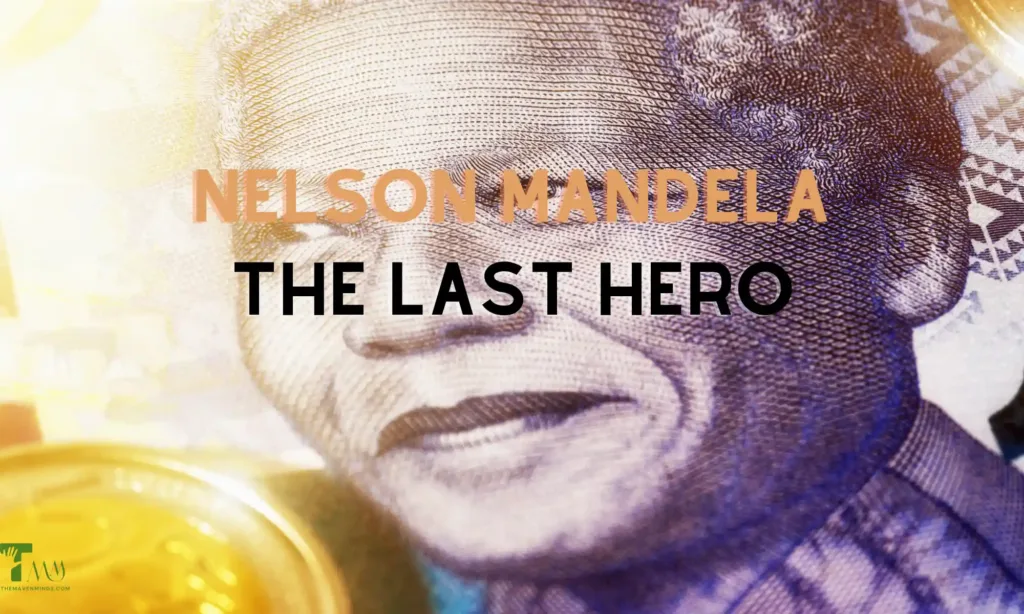Nelson Mandela… the Last Hero
In a world plagued by racism and oppression, the story of Nelson Mandela stands as a testament to the indomitable spirit of a man who defied all odds. After 27 long years of confinement and fighting against the chains of apartheid in South Africa, Mandela emerged as a symbol of freedom, becoming the first black president in his country’s history. This article takes you on a journey through the extraordinary life of Mandela, an icon who reshaped the course of history.
Nelson Mandela, one of the most revered figures of the 20th century, stood as a symbol of resilience, courage, and unwavering commitment to justice. Born in a divided and discriminatory South Africa, Mandela’s life journey from a humble village to becoming the nation’s first black president was nothing short of extraordinary. This article explores the incredible life and legacy of Nelson Mandela, a true hero who fought against apartheid and dedicated his life to the pursuit of equality and freedom.
Introduction
Nelson Rolihlahla Mandela was born on July 18, 1918, in Mvezo, a small village in the Eastern Cape of South Africa. Growing up in a society plagued by racial segregation and inequality, Mandela’s early experiences shaped his unwavering resolve to fight for justice. His activism began in his youth, and he joined the African National Congress (ANC), a political organization dedicated to ending apartheid and achieving equality for all South Africans.
Early Life and Activism
Mandela’s early life was marked by a thirst for knowledge and a deep commitment to social change. Despite the challenges posed by limited educational opportunities for black South Africans, he pursued his studies and eventually obtained a law degree. Mandela’s involvement in anti-apartheid movements intensified during his time as a law student, and he became actively engaged in advocating for the rights of marginalized communities.
Fight Against Apartheid
The apartheid regime imposed by the National Party in 1948 institutionalized racial segregation and oppression in South Africa. Mandela and other ANC members launched various campaigns and protests, including the Defiance Campaign and the Treason Trial, to challenge the discriminatory policies of the government. The Sharpeville Massacre in 1960, where peaceful demonstrators were brutally killed by the police, further fueled the resistance against apartheid.
Imprisonment and Release
In 1962, Mandela was arrested and sentenced to life imprisonment for his role in the ANC’s armed struggle against apartheidregime. He spent 27 years behind bars, the majority of which were on Robben Island, a notorious prison where he faced harsh conditions. Mandela’s imprisonment transformed him into a symbol of the anti-apartheid movement, garnering international support and putting pressure on the South African government to release him.
Presidency and Reconciliation
In 1990, after immense pressure and growing internal resistance, Mandela was finally released from prison. His release marked a turning point in South African history, leading to negotiations between the apartheid government and the ANC. In 1994, South Africa held its first democratic elections, and Mandela became the country’s first black president. His presidency focused on reconciliation and healing the wounds of apartheid through the establishment of the Truth and Reconciliation Commission, which aimed to uncover the atrocities committed during the apartheid era and promote forgiveness and understanding.
Humanitarian Work and Global Influence
Following his presidency, Mandela continued his advocacy for human rights and social justice on a global scale. He played a crucial role in mediating conflicts and promoting peace in various regions, including Rwanda, Burundi, and the Middle East. Mandela’s commitment to charitable causes led to the establishment of the Nelson Mandela Foundation, which continues to champion education, healthcare, and other initiatives to uplift marginalized communities.
Lasting Legacy and Inspiration
Nelson Mandela’s legacy extends far beyond his presidency and activism. His unwavering dedication to equality and justice continues to inspire people around the world. Mandela’s ability to embrace forgiveness and reconciliation serves as a powerful example of the transformative power of compassion and understanding. His life and leadership remind us that change is possible even in the face of seemingly insurmountable obstacles.
Conclusion
Nelson Mandela, the last hero, left an indelible mark on the world through his tireless efforts to combat apartheid and champion the cause of equality. His unwavering commitment to justice, reconciliation, and the betterment of humanity serves as a beacon of hope for future generations. As we reflect on Mandela’s life, let us remember his enduring message: that the power of love, forgiveness, and unity can triumph over oppression and create a more just and equitable world.
FAQs
- What was Nelson Mandela’s full name?Nelson Mandela’s full name was Nelson Rolihlahla Mandela.
- How long was Nelson Mandela imprisoned?Nelson Mandela was imprisoned for a total of 27 years.
- What is the African National Congress?The African National Congress (ANC) is a political organization in South Africa that played a pivotal role in the fight against apartheid and has been the ruling party since the country’s transition to democracy.
- What is the Truth and Reconciliation Commission?The Truth and Reconciliation Commission (TRC) was a body established in South Africa to investigate human rights violations committed during the apartheid era. It aimed to promote healing and reconciliation by allowing perpetrators of crimes to confess and seek amnesty.
- What are some of Nelson Mandela’s notable awards?Nelson Mandela received numerous awards and honors, including the Nobel Peace Prize, the Bharat Ratna, and the Presidential Medal of Freedom, to name just a few.

